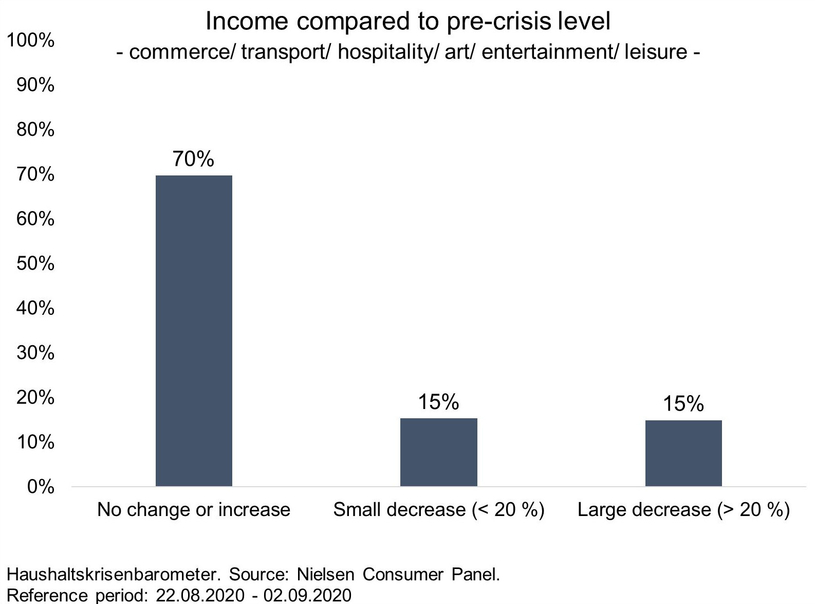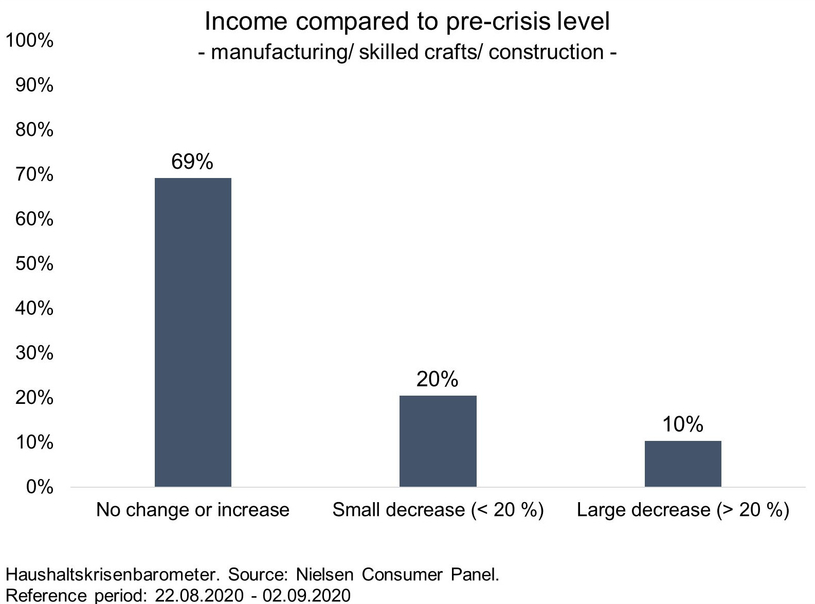These results are provided by the current wave of surveys of the "Haushaltskrisenbarometer" (Household Crisis Barometer), which is jointly carried out by the Leibniz Institute for Financial Research SAFE, Nielsen-Frankfurt, and the Chair of Finance and Economics at the Goethe University Frankfurt.
"For the majority of people, the situation has not worsened further in the last six months since the survey began, but in some cases has even improved again. The households, which must get along actually still with fewer incomes, are already since at the end of March in this situation,” says Roman Inderst, Professor of Finance and Economics at the Goethe University Frankfurt. According to the survey, 83 percent of the 10,800 households that took part in the current wave of surveys for the household crisis barometer at the beginning of September 2020 have been spared income losses, while 17 percent are struggling with income losses.

The income of households in which people work independently or are employed in the sectors commerce, transport, hospitality, art, entertainment, and leisure as well as manufacturing, skilled crafts, and construction has developed comparatively poorly. Both among the self-employed and among employees in the above-mentioned sectors 30 percent of households have suffered a drop in income.
Looking at income trends over the next six months, only seven percent of households currently expect to receive less income. Those households which the Corona crisis has already affected in terms of lower incomes do not expect their income to return to pre-crisis levels in the course of the next six months.

"Half a year after the outbreak of the Corona pandemic we have observed that the financial situation of households in Germany has neither significantly deteriorated nor recovered significantly after the first shock in March 2020," Andreas Hackethal, director of the research department Household Finance at SAFE. "Given the reality of people's lives, Germany has thus made it relatively well so far through the crisis."
About the cooperation
The Haushaltskrisenbarometer (Household Crisis Barometer) is carried out by a cooperation between the Leibniz Institute for Financial Research SAFE, Nielsen-Frankfurt, and the Chair of Finance and Economics at the Goethe University Frankfurt. Currently, questions are asked to the households of the Nielsen Consumer Panel every four weeks. The high number of households continuously surveyed, the large number of answers (always more than 7,000 households), and the possibility of making the answers representative by means of statistical methods result in a reliable and timely picture of the economic situation, consumer behaviour and expectations of the entire population. The Nielsen Consumer Panel also allows survey results to be linked to actual purchasing behaviour for further analysis or comparison. In this way, it is possible to analyze how the income shocks surveyed are also reflected in the shopping basket of individual households.
All survey results can be found here (in German only)
Scientific contact
Prof. Dr. Andreas Hackethal
Director of the SAFE research department Household Finance
Email: hackethal@safe-frankfurt.de
Phone: +49 69 798 33700

